- Home
- D. H. Lawrence
Women in Love (Barnes & Noble Classics Series) Page 12
Women in Love (Barnes & Noble Classics Series) Read online
Page 12
“I don’t know,” he said.
“I do—I want to love,” said Birkin.
“You do?”
“Yes. I want the finality of love.”
“The finality of love,” repeated Gerald. And he waited for a moment.
“Just one woman,” he added. The evening light, flooding yellow along the fields, lit up Birkin’s face with a tense, abstract steadfastness. Gerald still could not make it out.
“Yes, one woman,” said Birkin.
But to Gerald it sounded as if he were insistent rather than confident.
“I don’t believe a woman, and nothing but a woman, will ever make my life,” said Gerald.
“Not the centre and core of it—the love between you and a woman?” asked Birkin.
Gerald’s eyes narrowed with a queer dangerous smile as he watched the other man.
“I never quite feel it that way,” he said.
“You don’t? Then wherein does life centre, for you?”
“I don’t know—that’s what I want somebody to tell me. As far as I can make out, it doesn’t centre at all. It is artificially held together by the social mechanism.”
Birkin pondered as if he would crack something.
“I know,” he said, “it just doesn’t centre. The old ideals are dead as nails—nothing there. It seems to me there remains only this perfect union with a woman—sort of ultimate marriage—and there isn’t anything else.”
“And you mean if there isn’t the woman, there’s nothing?” said Gerald.
“Pretty well that—seeing there’s no God.”
“Then we’re hard put to it,” said Gerald. And he turned to look out of the window at the flying, golden landscape.
Birkin could not help seeing how beautiful and soldierly his face was, with a certain courage to be indifferent.
“You think it’s heavy odds against us?” said Birkin.
“If we’ve got to make our life up out of a woman, one woman, woman only, yes, I do,” said Gerald. “I don’t believe I shall ever make up my life, at that rate.”
Birkin watched him almost angrily.
“You are a born unbeliever,” he said.
“I only feel what I feel,” said Gerald. And he looked again at Birkin almost sardonically, with his blue, manly, sharp-lighted eyes. Birkin’s eyes were at the moment full of anger. But swiftly they became troubled, doubtful, then full of a warm, rich affectionateness and laughter.
“It troubles me very much, Gerald,” he said, wrinkling his brows.
“I can see it does,” said Gerald, uncovering his mouth in a manly, quick, soldierly laugh.
Gerald was held unconsciously by the other man. He wanted to be near him, he wanted to be within his sphere of influence. There was something very congenial to him in Birkin. But yet, beyond this, he did not take much notice. He felt that he, himself, Gerald, had harder and more durable truths than any the other man knew. He felt himself older, more knowing. It was the quick-changing warmth and venality and brilliant warm utterance he loved in his friend. It was the rich play of words and quick interchange of feelings he enjoyed. The real content of the words he never really considered: he himself knew better.
Birkin knew this. He knew that Gerald wanted to be fond of him without taking him seriously. And this made him go hard and cold. As the train ran on, he sat looking at the land, and Gerald fell away, became as nothing to him.
Birkin looked at the land, at the evening, and was thinking: “Well, if mankind is destroyed, if our race is destroyed like Sodom, and there is this beautiful evening with the luminous land and trees, I am satisfied. That which informs it all is there, and can never be lost. After all, what is mankind but just one expression of the incomprehensible. And if mankind passes away, it will only mean that this particular expression is completed and done. That which is expressed, and that which is to be expressed, cannot be diminished. There it is, in the shining evening. Let mankind pass away—time it did. The creative utterances will not cease, they will only be there. Humanity doesn’t embody the utterance of the incomprehensible any more. Humanity is a dead letter. There will be a new embodiment, in a new way. Let humanity disappear as quick as possible.”
Gerald interrupted him by asking:
“Where are you staying in London?”
Birkin looked up.
“With a man in Soho.t I pay part of the rent of a flat, and stop there when I like.”
“Good idea—have a place more or less your own,” said Gerald.
“Yes. But I don’t care for it much. I’m tired of the people I am bound to find there.”
“What kind of people?”
“Art—music—London Bohemia—the most pettifogging calculating Bohemia that ever reckoned its pennies. But there are a few decent people, decent in some respects. They are really very thorough rejecters of the world—perhaps they live only in the gesture of rejection and negation—but negatively something, at any rate.”
“What are they?—painters, musicians?”
“Painters, musicians, writers—hangers-on, models, advanced young people, anybody who is openly at outs with the conventions, and belongs to nowhere particularly. They are often young fellows down from the University, and girls who are living their own lives, as they say.”
“All loose?” said Gerald.
Birkin could see his curiosity roused.
“In one way. Most bound, in another. For all their shockingness, all on one note.”
He looked at Gerald, and saw how his blue eyes were lit up with a little flame of curious desire. He saw too how good-looking he was. Gerald was attractive, his blood seemed fluid and electric. His blue eyes burned with a keen, yet cold light, there was a certain beauty, a beautiful passivity in all his body, his moulding.
“We might see something of each other—I am in London for two or three days,” said Gerald.
“Yes,” said Birkin, “I don’t want to go to the theatre, or the music hall—you’d better come round to the flat, and see what you can make of Halliday and his crowd.”2 “Thanks—I should like to,” laughed Gerald. “What are you doing to-night?”
“I promised to meet Halliday at the Pompadour.u It’s a bad place, but there is nowhere else.”
“Where is it?” asked Gerald.
“Piccadilly Circus.”
“Oh yes—well, shall I come round there?”
“By all means, it might amuse you.”
The evening was falling. They had passed Bedford. Birkin watched the country, and was filled with a sort of hopelessness. He always felt this, on approaching London. His dislike of mankind, of the mass of mankind, amounted almost to an illness.
“ ‘Where the quiet coloured end of the evening smiles
Miles and miles—’ ”
he was murmuring to himself, like a man condemned to death. Gerald, who was very subtly alert, wary in all his senses, leaned forward and asked smilingly:
“What were you saying?” Birkin glanced at him, laughed, and repeated:
“ ‘Where the quiet coloured end of evening smiles,
Miles and miles,
Over pastures where the something something sheep
Half asleep—’”v
Gerald also looked now at the country. And Birkin, who, for some reason was now tired and dispirited, said to him:
“I always feel doomed when the train is running into London. I feel such a despair, so hopeless, as if it were the end of the world.”
“Really!” said Gerald. “And does the end of the world frighten you?”
Birkin lifted his shoulders in a slow shrug.
“I don’t know,” he said. “It does while it hangs imminent and doesn’t fall. But people give me a bad feeling—very bad.”
There was a roused glad smile in Gerald’s eyes.
“Do they?” he said. And he watched the other man critically.
In a few minutes the train was running through the disgrace of outspread London. Everybody in the carriage was on th
e alert, waiting to escape. At last they were under the huge arch of the station, in the tremendous shadow of the town. Birkin shut himself together—he was in now.
The two men went together in a taxi-cab.
“Don’t you feel like one of the damned?” asked Birkin, as they sat in a little, swiftly-running enclosure, and watched the hideous great street.
“No,” laughed Gerald.
“It is real death,” said Birkin.
CHAPTER VI
Crème de Menthe
THEY MET AGAIN IN the café several hours later. Gerald went through the push doors into the large, lofty room where the faces and heads of the drinkers showed dimly through the haze of smoke, reflected more dimly, and repeated ad infinitum in the great mirrors on the walls, so that one seemed to enter a vague, dim world of shadowy drinkers humming within an atmosphere of blue tobacco smoke. There was, however, the red plush of the seats to give substance within the bubble of pleasure.
Gerald moved in his slow, observant, glistening-attentive motion down between the tables and the people whose shadowy faces looked up as he passed. He seemed to be entering in some strange element, passing into an illuminated new region, among a host of licentious souls. He was pleased, and entertained. He looked over all the dim, evanescent, strangely illuminated faces that bent across the tables. Then he saw Birkin rise and signal to him.
At Birkin’s table was a girl with dark, soft, fluffy hair cut short in the artist fashion, hanging level and full almost like the Egyptian princess’s. She was small and delicately made with warm colouring and large, dark hostile eyes. There was a delicacy, almost a beauty in all her form, and at the same time a certain attractive grossness of spirit, that made a little spark leap instantly alight in Gerald’s eyes.
Birkin, who looked muted, unreal, his presence left out, introduced her as Miss Darrington. She gave her hand with a sudden, unwilling movement, looking all the while at Gerald with a dark, exposed stare. A glow came over him as he sat down.
The waiter appeared. Gerald glanced at the glasses of the other two. Birkin was drinking something green, Miss Darrington had a small liqueur glass that was empty save for a tiny drop.
“Won’t you have some more—?”
“Brandy,” she said, sipping her last drop and putting down the glass. The waiter disappeared.
“No,” she said to Birkin. “He doesn’t know I’m back. He’ll be terwified when he sees me here.”
She spoke her r’s like w’s, lisping with a slightly babyish pronunciation which was at once affected and true to her character. Her voice was dull and toneless.
“Where is he then?” asked Birkin.
“He’s doing a private show at Lady Snellgrove’s,” said the girl. “Warrens is there too.”
There was a pause.
“Well, then,” said Birkin, in a dispassionate protective manner, “what do you intend to do?”
The girl paused sullenly. She hated the question.
“I don’t intend to do anything,” she replied. “I shall look for some sittings to-morrow
“Who shall you go to?” asked Birkin.
“I shall go to Bentley’s first. But I believe he’s angwy with me for running away.”
“That is from the Madonna?”
“Yes. And then if he doesn’t want me, I know I can get work with Carmarthen.”
“Carmarthen?”
“Lord Carmarthen—he does photographs.”
“Chiffon and shoulders—”
“Yes. But he’s awfully decent.” There was a pause.
“And what are you going to do about Julius?” he asked.
“Nothing,” she said. “I shall just ignore him.”
“You’ve done with him altogether?” But she turned aside her face sullenly, and did not answer the question.
Another young man came hurrying up to the table.
“Hallo Birkin! Hallo Pussum, when did you come back?” he said eagerly.
“To-day.”
“Does Halliday know?”
“I don’t know. I don’t care either.”
“Ha-ha! The wind still sits in that quarter,w does it? Do you mind if I come over to this table?”
“I’m talking to Wupert, do you mind?” she replied, coolly and yet appealingly, like a child.
“Open confession—good for the soul, eh?” said the young man. “Well, so long.”
And giving a sharp look at Birkin and at Gerald, the young man moved off, with a swing of his coat skirts.
All this time Gerald had been completely ignored. And yet he felt that the girl was physically aware of his proximity. He waited, listened, and tried to piece together the conversation.
“Are you staying at the flat?” the girl asked, of Birkin.
“For three days,” replied Birkin. “And you?”
“I don’t know yet. I can always go to Bertha’s.” There was a silence.
Suddenly the girl turned to Gerald, and said, in a rather formal, polite voice, with the distant manner of a woman who accepts her position as a social inferior, yet assumes intimate camaraderie with the male she addresses:
“Do you know London well?”
“I can hardly say,” he laughed. “I’ve been up a good many times, but I was never in this place before.”
“You’re not an artist, then?” she said, in a tone that placed him an outsider.
“No,” he replied.
“He’s a soldier, and an explorer, and a Napoleon of industry,” said Birkin, giving Gerald his credentials for Bohemia.1
“Are you a soldier?” asked the girl, with a cold yet lively curiosity.
“No, I resigned my commission,” said Gerald, “some years ago.”
“He was in the last war,” said Birkin.
“Were you really?” said the girl.
“And then he explored the Amazon,” said Birkin, “and now he is ruling over coal-mines.”
The girl looked at Gerald with steady, calm curiosity. He laughed, hearing himself described. He felt proud too, full of male strength. His blue, keen eyes were lit up with laughter, his ruddy face, with its sharp fair hair, was full of satisfaction, and glowing with life. He piqued her.
“How long are you staying?” she asked him.
“A day or two,” he replied. “But there is no particular hurry.”
Still she stared into his face with that slow, full gaze which was so curious and so exciting to him. He was acutely and delightfully conscious of himself, of his own attractiveness. He felt full of strength, able to give off a sort of electric power. And he was aware of her dark, hot-looking eyes upon him. She had beautiful eyes, dark, fully-opened, hot, naked in their looking at him. And on them there seemed to float a film of disintegration, a sort of misery and sullenness, like oil and water. She wore no hat in the heated café, her loose, simple jumper was strung on a string round her neck. But it was made of rich peach-coloured crêpe-de-chine, that hung heavily and softly from her young throat and her slender wrists. Her appearance was simple and complete, really beautiful, because of her regularity and form, her soft dark hair falling full and level on either side of her head, her straight, small, softened features, Egyptian in the slight fulness of their curves, her slender neck and the simple, rich-coloured smock hanging on her slender shoulders. She was very still, almost null, in her manner, apart and watchful.
She appealed to Gerald strongly. He felt an awful, enjoyable power over her, an instinctive cherishing very near to cruelty. For she was a victim. He felt that she was in his power, and he was generous. The electricity was turgid and voluptuously rich, in his limbs. He would be able to destroy her utterly in the strength of his discharge. But she was waiting in her separation, given.
They talked banalities for some time. Suddenly Birkin said:
“There’s Julius!” and he half rose to his feet, motioning to the newcomer. The girl, with a curious, almost evil motion, looked round over her shoulder without moving her body. Gerald watched her dark, soft hair s
wing over her ears. He felt her watching intensely the man who was approaching, so he looked too. He saw a pale, full-built young man with rather long, solid fair hair hanging from under his black hat, moving cumbrously down the room, his face lit up with a smile at once naive and warm, and vapid. He approached towards Birkin, with a haste of welcome.
It was not till he was quite close that he perceived the girl. He recoiled, went pale, and said, in a high squealing voice:
“Pussum, what are you doing here?”
The café looked up like animals when they hear a cry. Halliday hung motionless, an almost imbecile smile flickering palely, on his face. The girl only stared at him with a black look in which flared an unfathomable hell of knowledge, and a certain impotence. She was limited by him.
“Why have you come back?” repeated Halliday, in the same high, hysterical voice. “I told you not to come back.”
The girl did not answer, only stared in the same viscous, heavy fashion, straight at him, as he stood recoiled, as if for safety, against the next table.
“You know you wanted her to come back—come and sit down,” said Birkin to him.
“No I didn’t want her to come back, and I told her not to come back. What have you come for, Pussum?”
“For nothing from you,” she said in a heavy voice of resentment.
“Then why have you come back at all?” cried Halliday, his voice rising to a kind of squeal.
“She comes as she likes,” said Birkin. “Are you going to sit down, or are you not?”
“No, I won’t sit down with Pussum,” cried Halliday.
“I won’t hurt you, you needn’t be afraid,” she said to him, very curtly, and yet with a sort of protectiveness towards him, in her voice.
Halliday came and sat at the table, putting his hand on his heart, and crying:
“Oh, it’s given me such a turn! Pussum, I wish you wouldn’t do these things. Why did you come back?”
“Not for anything from you,” she repeated.
“You’ve said that before,” he cried in a high voice.
She turned completely away from him, to Gerald Crich, whose eyes were shining with a subtle amusement.

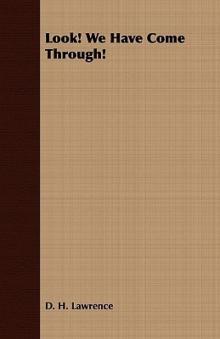 Look! We Have Come Through!
Look! We Have Come Through!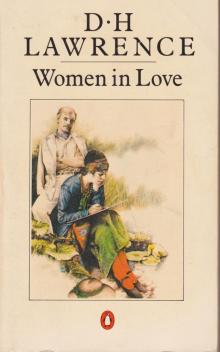 Women in Love
Women in Love The Ladybird
The Ladybird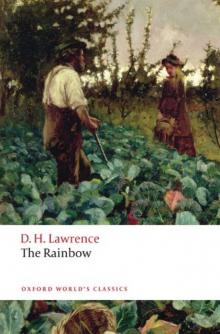 The Rainbow
The Rainbow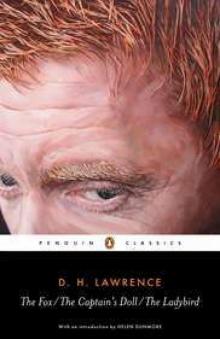 The Captain's Dol
The Captain's Dol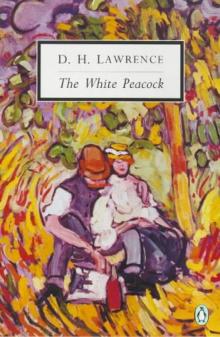 The White Peacock
The White Peacock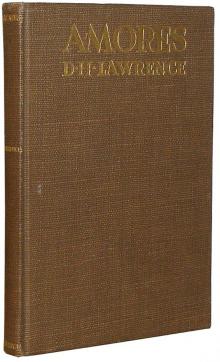 Amores
Amores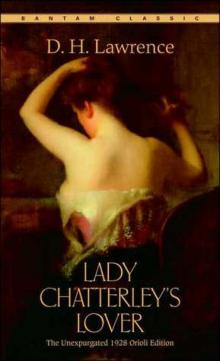 Lady Chatterley's Lover
Lady Chatterley's Lover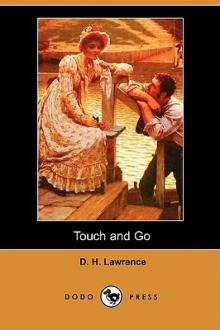 Touch and Go
Touch and Go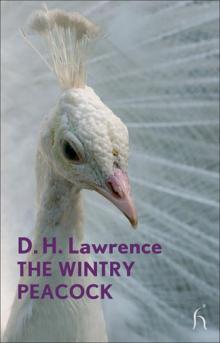 The Wintry Peacock
The Wintry Peacock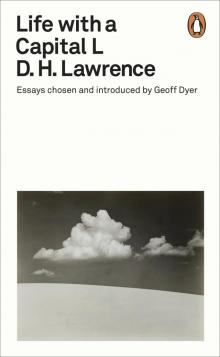 Life with a Capital L
Life with a Capital L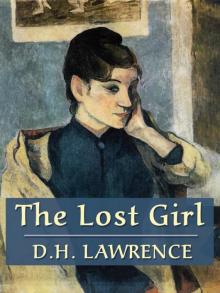 The Lost Girl
The Lost Girl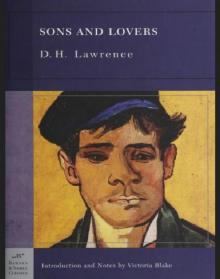 Sons and Lovers
Sons and Lovers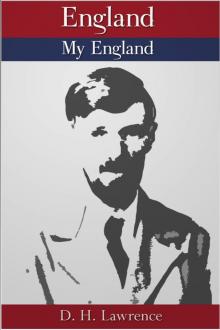 England, My England
England, My England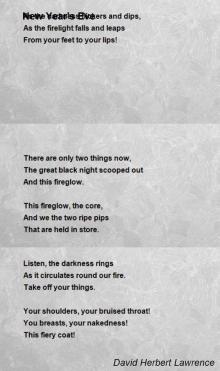 New Poems
New Poems Twilight in Italy
Twilight in Italy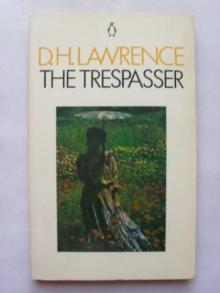 The Trespasser
The Trespasser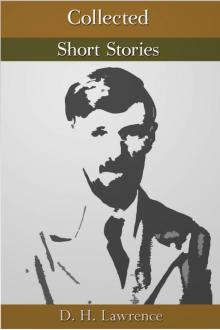 The Collected Short Stories
The Collected Short Stories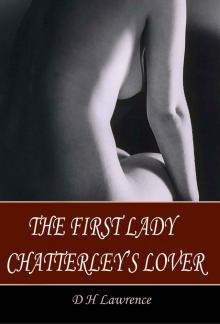 The First Lady Chatterley's Lover
The First Lady Chatterley's Lover Kangaroo
Kangaroo Bay
Bay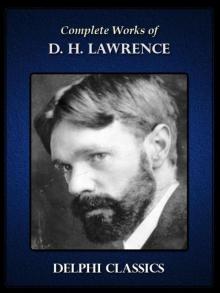 Complete Works of D.H. Lawrence
Complete Works of D.H. Lawrence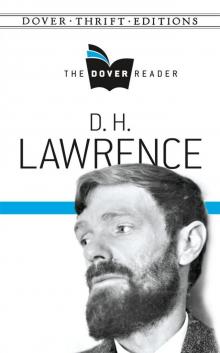 D H Lawrence- The Dover Reader
D H Lawrence- The Dover Reader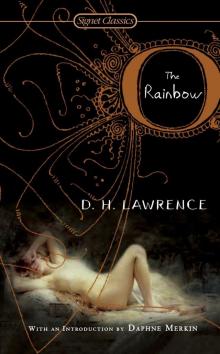 The Rainbow (100th Anniversary ed.)
The Rainbow (100th Anniversary ed.)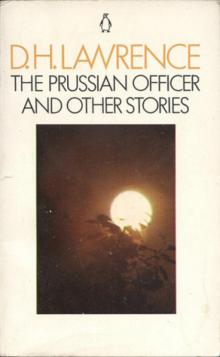 The Prussian Officer
The Prussian Officer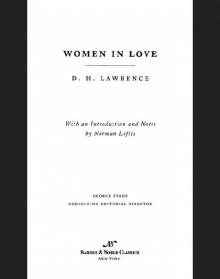 Women in Love (Barnes & Noble Classics Series)
Women in Love (Barnes & Noble Classics Series)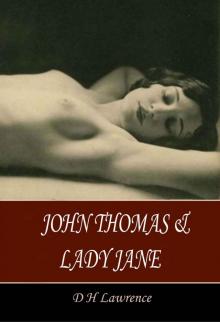 John Thomas and Lady Jane
John Thomas and Lady Jane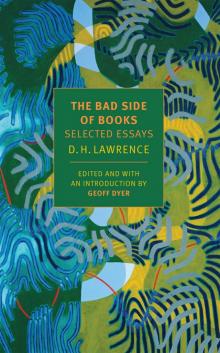 The Bad Side of Books
The Bad Side of Books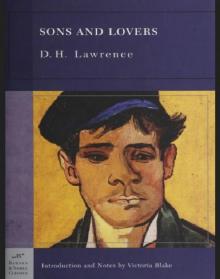 Sons and Lovers (Barnes & Noble Classics Series)
Sons and Lovers (Barnes & Noble Classics Series) Selected Stories
Selected Stories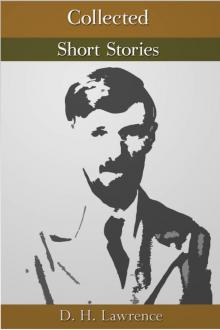 Collected Short Stories
Collected Short Stories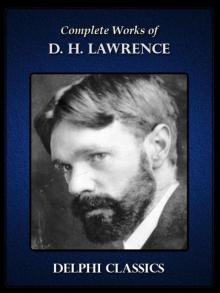 Complete Works of D.H. Lawrence (Illustrated)
Complete Works of D.H. Lawrence (Illustrated)